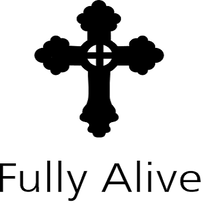|
by Erik Ritland
“Justice has indeed been established on earth, but it is up to each of us to live in it and perpetuate it.” Fully Alive’s Lenten Scriptural Commentary helps Christians get more out of Lent by taking God’s word seriously. Mostly avoiding personal stories and anecdotes, our commentary dives deeply into the scripture readings for each day and applies them to the broader context of Lent. We use the daily Mass readings from the Catholic lectionary. If possible, read each passage slowly, taking in each word. If you find that you’ve hurried through a reading, read it over a few more times. Let the words reverberate in your heart. After you’ve let it sink in, read our Lenten Scriptural Commentary. Monday of Holy Week In today’s Gospel, Mary anoints Jesus for burial. She is preparing Him to inaugurate the Kingdom that Isaiah speak of in the first reading. Readings: Is 42:1-7/Jn 12:1-11 Click here to read the complete text from the USCCB website Here is my servant whom I uphold, my chosen one with whom I am pleased, Upon whom I have put my Spirit; he shall bring forth justice to the nations, Not crying out, not shouting, not making his voice heard in the street. A bruised reed he shall not break, and a smoldering wick he shall not quench, Until he establishes justice on the earth; the coastlands will wait for his teaching. (cf Is 42: 1-7) As we’ve seen throughout Lent, the Kingdom that Jesus establishes is foreshadowed all over the Old Testament. Isaiah explains that this Kingdom will be led by a meek servant who will bring justice to the world. But how can this be? Isn’t the world the same now as it was back then, dealing with the same and sometimes worse issues of injustice? Jesus fulfilled God’s promises of justice that were laid out in the Old Covenant through His entire work: His teaching, actions, death, resurrection, and the establishment of His Church. Those who follow Him are called to bring this justice in the world. Justice has indeed been established on earth, but it is up to each of us to live in it and perpetuate it. Then Judas the Iscariot, one of his disciples, and the one who would betray him, said, "Why was this oil not sold for three hundred days' wages and given to the poor?" He said this not because he cared about the poor but because he was a thief and held the money bag and used to steal the contributions. So Jesus said, "Leave her alone. Let her keep this for the day of my burial. You always have the poor with you, but you do not always have me." (cf. Jn 12: 1-11) There are few things that are more important to Jesus than charity. Preparing His body for burial was one of them. To understand this, we must meditate on the gravity of the situation. For Christians, Jesus’ Passion is the single most important event in human history. We’ve heard the stories so much that it’s sometimes easy to forget basic facts: Jesus was indeed a human being, He did walk this earth, He was true man. What Mary does is a symbolic gesture that emphasizes that Jesus’ human form was important, and that what He was about to go through was the pinnacle of human history. Erik Ritland is a writer and musician. The founder of Fully Alive Christian Media, he also created The Minnesota Sport Ramble and is a writer and copy editor for Music in Minnesota. He was Lead Staff Writer for Minnesota culture blogs Curious North and Hometown Hustle. Reach him via email.
0 Comments
Leave a Reply. |
Authors
Erik Ritland received his MA in Theology in 2017. He's the founder and content manager of Fully Alive Christian Media and Rambling On, copy editor and writer for Music in Minnesota, and an acclaimed songwriter. Archives
April 2019
Categories |

 RSS Feed
RSS Feed
